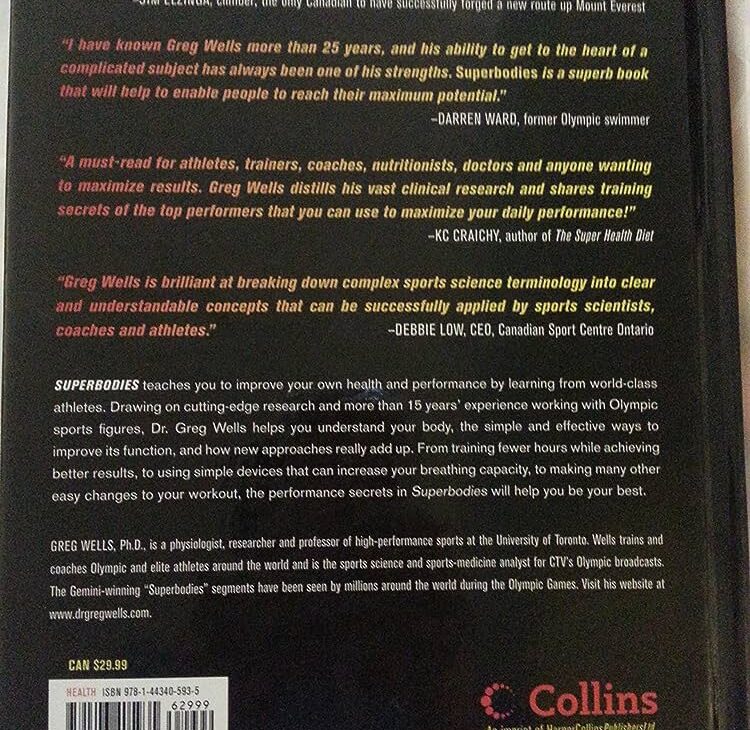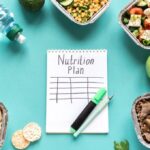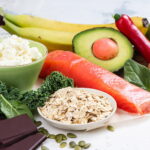The best diet for athletic performance is one that focuses on consuming a balanced combination of carbohydrates, proteins, and fats to provide the energy and nutrients necessary for peak performance. By fueling the body with the right nutrients, athletes can optimize their performance and recovery, leading to improved endurance, strength, and overall athletic abilities.
Athletes require a proper and well-balanced diet to optimize their performance and achieve their goals. A diet that emphasizes a balanced combination of carbohydrates, proteins, and fats provides the necessary energy and nutrients required for peak performance. Carbohydrates are the body’s primary source of energy and should be consumed in the form of whole grains, fruits, and vegetables.
Lean proteins, such as chicken, fish, and beans, support muscle growth and repair. Healthy fats, like avocados and nuts, aid in hormone production and reduce inflammation. By following a diet that incorporates these macronutrients, athletes can optimize their performance, improve endurance, build lean muscle mass, and support overall recovery. Additionally, staying hydrated and consuming a variety of vitamins and minerals is important for maintaining optimal health and performance.
Fueling Your Body For Peak Performance
For optimal athletic performance, fueling your body with the best diet is crucial. Find out how proper nutrition can enhance your energy levels, endurance, and recovery, helping you reach peak performance in your sport.
As an athlete, proper nutrition plays a crucial role in enhancing your athletic performance. Consuming the right balance of macronutrients is key to fueling your body and optimizing your energy levels. In this section, we will explore the importance of proper nutrition for athletes, as well as delve into the role of macronutrients in athletic performance and how to balance them effectively.
Importance Of Proper Nutrition For Athletes
- Achieve optimal performance: Proper nutrition ensures that your body has the necessary fuel to perform at its best, allowing you to train harder, recover faster, and compete at a higher level.
- Enhance recovery: Nutrient-rich foods aid in muscle repair and replenish glycogen stores, helping you bounce back quicker after intense training sessions or competitions.
- Boost immune function: A well-nourished body is better equipped to fend off illness and infections, which can hinder training and performance.
- Reduce injuries: Adequate nutrition supports healthy bones, muscles, and connective tissues, reducing the risk of injuries and promoting overall durability.
Understanding Macronutrients And Their Role In Athletic Performance
To optimize your performance, it is essential to understand the role of macronutrients – carbohydrates, proteins, and fats – and how they contribute to your athletic endeavors.
Carbohydrates:
- Primary energy source: Carbohydrates provide the body with readily available energy to fuel your workouts and support high-intensity exercise.
- Glycogen stores: Carbohydrates are stored in the muscles and liver as glycogen, allowing for sustained energy during prolonged endurance activities.
- Timing and types: Consuming carbohydrates before, during, and after workouts is crucial for replenishing glycogen stores and optimizing performance. Include complex carbohydrates like whole grains, fruits, and vegetables for sustained energy.
Proteins:
- Muscle repair and growth: Protein is essential for repairing and building muscles, which are constantly subjected to stress during training.
- Recovery aid: Consuming protein after exercise helps kickstart the repair process and aids in muscle recovery.
- Timing and sources: Distribute protein intake evenly throughout the day and include sources like lean meats, poultry, fish, dairy, legumes, and plant-based protein sources.
Fats:
- Energy reserve: Fats serve as a concentrated energy source, providing fuel for prolonged endurance activities.
- Hormone production: Certain fats are vital for hormone production, which directly impacts performance and recovery.
- Essential fatty acids: Omega-3 and omega-6 fatty acids are critical for reducing inflammation, promoting cardiovascular health, and supporting brain function.
- Healthy sources: Choose unsaturated fats found in nuts, seeds, avocados, and fatty fish, while limiting saturated and trans fats.
Balancing Carbohydrates, Proteins, And Fats For Optimal Energy
- Personalize your approach: The ideal balance of macronutrients may vary depending on factors such as sport, training volume, and individual needs. Experiment to find what works best for you.
- Timing matters: Consider the timing of your meals and snacks to ensure optimal energy levels during training and competition. Pre-workout meals should focus on carbohydrates for immediate fuel, while post-workout meals should include a mix of carbohydrates and protein for recovery.
- Seek professional guidance: Consulting a sports nutritionist or registered dietitian who specializes in athletics can provide personalized recommendations based on your specific needs and goals.
- Stay hydrated: Adequate hydration is crucial for optimal performance. Aim to drink fluids regularly throughout the day and replenish electrolytes during intense training sessions or competitions.
Remember, proper nutrition is not a one-size-fits-all approach. Finding the right balance of macronutrients for your body is a continuous process of experimentation and personalization. By fueling your body with the right nutrients, you can maximize your athletic performance and achieve your goals.
Keep pushing your limits and enjoy the journey to peak performance!

Credit: www.healthline.com
Hydration: The Key To Success
Discover the best diet for athletic performance: hydration. Proper hydration is the key to success, helping to maximize physical endurance and maintain optimal performance levels. Stay hydrated for peak athletic performance.
The Impact Of Dehydration On Athletic Performance:
- Dehydration can have detrimental effects on athletic performance.
- When the body loses just 2% of its total water content, it can lead to a noticeable decrease in physical and mental performance.
- Dehydration can cause fatigue, muscle cramps, dizziness, reduced endurance, and impaired concentration.
- It negatively affects cardiovascular function, making the heart work harder to pump blood, and can lead to increased body temperature.
- Dehydration also impairs the body’s ability to regulate body temperature, putting athletes at risk of heat-related illnesses.
Importance Of Staying Hydrated Before, During, And After Workouts:
- Pre-workout hydration helps maintain optimal performance by ensuring adequate hydration levels before starting any physical activity.
- Staying hydrated during workouts is crucial for replacing fluid loss through sweat and maintaining performance levels.
- Post-workout hydration is essential for replenishing lost fluids, aiding in muscle recovery, and preventing dehydration-related complications.
- Proper hydration supports the body’s ability to transport nutrients, remove waste, and regulate body temperature.
- Adequate hydration also helps prevent injuries, such as muscle strains and cramps, by keeping muscles and joints lubricated.
Best Practices For Hydrating Effectively:
- Drink water regularly throughout the day, even when not engaged in exercise.
- Start workouts already hydrated and continue drinking fluids during physical activity.
- Monitor urine color. Pale yellow indicates proper hydration, while dark yellow or amber-colored urine may be a sign of dehydration.
- Hydrate with water and electrolyte-rich beverages, such as sports drinks, to replenish electrolytes lost through sweat.
- Remember that individual hydration needs vary, so it’s important to listen to your body’s thirst cues and adjust fluid intake accordingly.
- Avoid excessive caffeine and alcohol consumption as they can contribute to dehydration.
- For intense workouts lasting longer than an hour, consider consuming carbohydrates and electrolytes to maintain energy levels and hydration.
- Use a reusable water bottle to ensure accessibility to fluids at all times.
- Stay consistent with your hydration routine to establish good habits that support optimal athletic performance.
By prioritizing hydration and following these best practices, athletes can enhance their performance, reduce the risk of dehydration-related complications, and achieve optimal physical output. Remember, staying properly hydrated is the key to success in any athletic endeavor.
Pre-Workout Nutrition: Setting The Stage For Success
Setting the stage for success in athletic performance starts with proper pre-workout nutrition. Choosing the best diet to fuel your body can optimize energy levels, enhance focus, and improve overall physical performance.
Before hitting the gym or the field, it is crucial to fuel your body with the right nutrients for optimal athletic performance. Pre-workout nutrition plays a vital role in providing energy, improving endurance, and enhancing overall workout quality. In this section, we will explore the timing and composition of pre-workout meals/snacks, the benefits of consuming carbohydrates and proteins before exercising, as well as the pros and cons of pre-workout supplements.
Timing And Composition Of Pre-Workout Meals/Snacks:
- Timing:
- Consuming a pre-workout meal or snack one to three hours before exercise provides enough time for digestion and nutrient absorption.
- Aim to eat at least 30 minutes before your workout to avoid feeling too full or experiencing discomfort.
- Composition:
- Include a balance of carbohydrates and proteins in your pre-workout meal/snack.
- Carbohydrates provide a readily available source of energy, while proteins aid in muscle repair and growth.
- Opt for complex carbohydrates such as whole grains, fruits, and vegetables, as they provide sustained energy.
- Include lean protein sources like chicken, fish, tofu, or yogurt to support muscle recovery.
The Benefits Of Consuming Carbohydrates And Proteins Before Exercising:
- Carbohydrates:
- Boost energy levels: Carbohydrates are the primary fuel source for high-intensity exercise, providing the necessary glucose to power your muscles.
- Enhance endurance: Adequate carbohydrate intake before a workout delays fatigue, allowing you to perform for a longer duration.
- Promote glycogen storage: Consuming carbohydrates before exercise replenishes glycogen stores in the muscles, ensuring optimal performance.
- Proteins:
- Aid in muscle repair: Intense workouts can cause muscle damage, and consuming protein before exercise promotes muscle recovery and growth.
- Enhance muscle protein synthesis: Protein intake before a workout stimulates muscle protein synthesis, leading to improved muscle strength and endurance.
- Preserve muscle mass: Pre-workout protein ingestion helps prevent muscle breakdown during exercise, particularly during prolonged sessions.
Pre-Workout Supplements: Pros And Cons
- Pros:
- Increased energy and focus: Some pre-workout supplements contain stimulants like caffeine, which can boost alertness, concentration, and overall workout performance.
- Enhanced endurance: Certain supplements contain ingredients like beta-alanine or nitric oxide precursors, which may improve endurance and delay fatigue.
- Convenience: Pre-workout supplements offer a quick and convenient option for those who are short on time or prefer a precise dosage.
- Cons:
- Potential side effects: Some individuals may experience jitters, digestive issues, or an accelerated heart rate due to the high caffeine content or other stimulants present in pre-workout supplements.
- Lack of regulation: The supplement industry is not as strictly regulated as pharmaceuticals, so the quality control and safety of certain products may be questionable.
- Dependency: Regular use of pre-workout supplements might lead to dependency and a decreased ability to perform without relying on these products.
Remember, while pre-workout nutrition is essential, individual preferences, goals, and dietary needs may vary. It is crucial to experiment and find what works best for your body. Listening to your body and making informed choices will help you optimize your performance and achieve your fitness goals.
During Workout Nutrition: Sustaining Energy Levels
Fuel your athletic performance with the best diet for sustaining energy levels during workouts. Stay energized and enhance your performance with the right nutrition plan.
Fueling Strategies For Endurance Athletes
- Time your pre-workout meal: Consuming a balanced meal 2-3 hours before your workout can provide sustained energy. Opt for lean proteins, whole grains, and fruits/vegetables.
- Carbohydrate loading: For longer endurance events, gradually increase carbohydrate intake leading up to the event to maximize glycogen storage in muscles.
- Consume carbohydrates during exercise: Choose easily digestible carbs like sports drinks, energy gels, or chews to maintain energy levels during prolonged workouts.
- Protein intake during exercise: Including protein in your workout nutrition can help reduce muscle breakdown. Consider protein shakes or bars for convenience.
- Avoid high-fat foods: Fat takes longer to digest, which may lead to discomfort during exercise. Limit intake of fatty foods before workouts.
Hydration And Electrolyte Replacement During Intense Workouts
- Maintain proper hydration: Drink water regularly before, during, and after workouts. Aim for 7-10 ounces every 10-20 minutes during exercise.
- Monitor electrolyte balance: Sweating can result in the loss of important electrolytes like sodium and potassium. Include electrolyte-rich sports drinks or tablets for replenishment.
- Stay aware of individual needs: Each athlete’s hydration requirements vary. Factors such as workout duration, intensity, and environmental conditions should be considered for personalized hydration strategies.
- Listen to your body: Thirst is not always an accurate indicator of hydration status. Pay attention to other signs like urine color and body weight changes to gauge hydration needs.
- Avoid excessive caffeine intake: While caffeine can enhance performance in moderate amounts, excessive consumption may lead to dehydration. Limit caffeine intake before and during workouts.
Utilizing Sports Drinks, Gels, And Energy Bars For Sustained Energy
- Sports drinks: Provide hydration, electrolytes, and quick energy in the form of carbohydrates. Look for drinks specifically designed for athletic performance.
- Energy gels/chews: Convenient sources of easily digestible carbohydrates during workouts. They provide a quick and sustained energy boost.
- Energy bars: Offer a balance of carbohydrates, protein, and fats for sustained energy. Choose bars with minimal added sugars and high-quality ingredients.
- Trial and error: Each athlete responds differently to various fueling options. Experiment with different sports drinks, gels, or bars during training sessions to identify what works best for you.
- Avoid overconsumption: Be mindful of the calorie content in sports drinks, gels, and bars. Excessive intake may lead to digestive discomfort or hinder performance.
Remember, fueling strategies for athletic performance may vary for individuals. Experimentation and finding what works best for you is crucial. Stay hydrated, maintain a balance of macronutrients, and listen to your body’s cues for optimal performance during workouts.
Post-Workout Recovery: Maximizing Results
Maximize your athletic performance with the best diet for post-workout recovery. Enhance results by fueling your body with essential nutrients and optimizing muscle repair and growth.
After an intense workout, your body needs careful nourishment to maximize results and enhance post-workout recovery. The right combination of nutrients can help repair and grow muscles, replenish glycogen stores, and support overall athletic performance. In this section, we will explore the window of opportunity for post-workout nutrition, the importance of protein consumption for muscle repair and growth, and the role of carbohydrates in replenishing glycogen stores.
The Window Of Opportunity For Post-Workout Nutrition:
- Consuming the right nutrients after a workout is crucial within the first 30 minutes to two hours, known as the window of opportunity.
- During this time, your body is most receptive to absorbing nutrients, aiding in muscle recovery and growth.
- Optimal post-workout nutrition during this window can maximize protein synthesis and glycogen replenishment, leading to improved athletic performance.
Protein Consumption For Muscle Repair And Growth:
- Protein is essential for repairing damaged muscle tissues and promoting muscle growth after intense exercise.
- Aim for around 20-30 grams of high-quality protein within the post-workout window.
- Including complete protein sources like lean meats, poultry, fish, eggs, dairy products, and plant-based protein powders can provide essential amino acids necessary for muscle recovery.
The Role Of Carbohydrates In Replenishing Glycogen Stores:
- Carbohydrates are the primary source of energy for muscles during exercise and play a vital role in replenishing glycogen stores after a workout.
- Choose carbohydrate-rich foods like whole grains, fruits, vegetables, and legumes to replenish glycogen levels effectively.
- Consuming 0.5-0.7 grams of carbohydrates per pound of body weight within the post-workout window can help replenish glycogen stores and prepare your body for future training sessions.
Remember, post-workout nutrition is key to maximizing your athletic performance. Prioritize protein consumption for muscle repair and growth, and replenish glycogen stores with the right carbohydrates. By nourishing your body with the right nutrients at the right time, you’ll recover faster, perform better, and achieve your athletic goals more efficiently.
So make the most of the post-workout window to fuel your success.
The Importance Of Micronutrients: Enhancing Performance
Micronutrients are essential for enhancing athletic performance. A well-balanced diet rich in vitamins, minerals, and antioxidants can optimize energy levels, support muscle function, and aid in recovery, allowing athletes to reach their peak performance.
Understanding The Role Of Vitamins And Minerals In Athletic Performance
Vitamins and minerals play a crucial role in the overall performance of athletes. These micronutrients are essential for a variety of bodily functions, including energy production, muscle contraction, and recovery. Here are a few key points to understand about the importance of vitamins and minerals in enhancing athletic performance:
- Vitamin C: This powerful antioxidant helps protect the body from oxidative stress, which can occur during intense physical activity. It also aids in collagen synthesis, which is essential for maintaining healthy connective tissues, such as tendons and ligaments.
- Vitamin D: Known as the “sunshine vitamin,” vitamin D is vital for bone health and calcium absorption. Athletes with sufficient levels of vitamin D are less prone to stress fractures and have enhanced muscle function.
- B Vitamins: The B-complex vitamins, including B1, B2, B3, B5, B6, B7, B9, and B12, are essential for energy metabolism, helping the body convert food into usable energy. They also support red blood cell production and nervous system function.
- Iron: Iron is crucial for optimal oxygen transport in the body. It helps red blood cells carry oxygen to working muscles, improving endurance and preventing fatigue. Athletes, especially females, often have higher iron requirements due to regular blood losses.
- Calcium: Aside from its well-known role in bone health, calcium is essential for proper muscle function and nerve transmission. It aids in muscle contraction and relaxation, supporting athletic performance and reducing the risk of muscle cramps.
Recommended Daily Intake For Athletes
To maximize athletic performance, athletes should aim to meet their recommended daily intake of vitamins and minerals. The specific requirements may vary depending on factors such as age, sex, sport, and training intensity. Here are the general recommendations for athletes:
- Vitamin C: 90-120 mg for males and females
- Vitamin D: 600-800 IU (international units) for males and females
- B Vitamins: Varied depending on the specific B vitamin, but generally ranges from 1-2 mg for most B vitamins
- Iron: 8-18 mg for males and 18-27 mg for females
- Calcium: 1000-1300 mg for males and females
It’s essential for athletes to consult with a healthcare professional or sports nutritionist to determine their specific nutrient needs based on their individual circumstances.
Incorporating Nutrient-Dense Foods Into An Athlete’S Diet
To ensure athletes receive an adequate supply of vitamins and minerals, it’s crucial to incorporate nutrient-dense foods into their diet. Here are some tips for making the most of each meal:
- Focus on fresh fruits and vegetables: These are excellent sources of vitamins, minerals, and antioxidants. Aim for a variety of colors to obtain a wide range of nutrients.
- Include lean protein sources: Protein is essential for muscle repair and growth. Opt for lean meats, poultry, fish, eggs, legumes, and tofu.
- Choose whole grains: Whole grains such as brown rice, quinoa, and whole wheat bread provide essential B vitamins and fiber.
- Don’t forget healthy fats: Incorporate sources of healthy fats like avocados, nuts, seeds, and olive oil. They help with nutrient absorption and provide a long-lasting source of energy.
- Stay hydrated: Adequate hydration is critical for proper nutrient absorption, energy production, and overall performance. Drink water throughout the day and during exercise.
By following these tips and prioritizing nutrient-dense foods, athletes can optimize their vitamin and mineral intake, ultimately enhancing their athletic performance. Remember, a well-balanced diet customized to individual needs is key to success.
Meal Planning For Optimal Performance
Optimize your athletic performance with effective meal planning. Discover the best diet to enhance your physical abilities and reach peak performance levels.
Understanding Individual Dietary Needs And Goals:
- Every athlete is unique, and their dietary needs and goals may vary based on factors such as sport, body composition, training intensity, and personal preferences.
- Proper understanding of individual dietary needs is crucial for designing an effective meal plan that supports optimal athletic performance.
- Athletes should consider consulting with a sports nutritionist or dietitian to assess their specific requirements and establish personalized dietary goals.
Creating A Balanced Meal Plan For Athletes:
- A balanced meal plan for athletes should include a combination of macronutrients, including carbohydrates, protein, and healthy fats, as well as an adequate intake of vitamins and minerals.
- Carbohydrates are a primary fuel source for athletic performance and should form the foundation of an athlete’s diet. Opt for whole grains, fruits, and vegetables to meet carbohydrate needs.
- Protein is essential for muscle repair and growth. Athletes should aim to consume high-quality sources of protein, such as lean meats, fish, dairy, and plant-based alternatives.
- Healthy fats, like those found in nuts, seeds, avocados, and olive oil, provide essential fatty acids and support overall health.
- Including a variety of fruits and vegetables in each meal plan ensures an adequate intake of vitamins, minerals, and antioxidants.
Meal Timing And Spacing To Support Performance And Recovery:
- Timing and spacing of meals play a significant role in supporting athletic performance and enhancing recovery.
- Before exercise: Consuming a well-balanced meal or snack containing carbohydrates and proteins 2-3 hours before a workout helps fuel the body and provides sustained energy.
- During exercise: For activities lasting longer than 60 minutes, athletes may need to consume additional carbohydrates in the form of sports drinks, gels, or easily digestible snacks for sustained energy.
- After exercise: Consuming a meal or snack containing carbohydrates and protein within 30 minutes to 2 hours post-exercise aids in muscle recovery and glycogen replenishment.
- Spacing meals evenly throughout the day, typically every 3-4 hours, helps maintain stable blood sugar levels and provides a constant source of energy for optimal performance.
- Additionally, staying well hydrated is crucial for athletes to maintain performance and prevent dehydration. Adequate fluid intake should be a priority throughout the day.
Remember, tailoring a meal plan to suit individual needs and goals is essential for optimal athletic performance. Consulting a professional, such as a sports nutritionist, can provide personalized guidance and ensure the best outcomes. So take the time to understand your body’s requirements and fuel it accordingly for peak performance!
Special Considerations: Athletes With Specific Dietary Needs
Athletes with specific dietary needs require a tailored approach to optimize their performance. The best diet for athletic performance should focus on individual requirements, such as nutrient timing, macronutrient ratios, and hydration strategies. By customizing the diet to meet the athlete’s needs, they can enhance their energy levels, muscle recovery, and overall athletic abilities.
Vegetarian And Vegan Athletes: Meeting Nutritional Requirements Without Animal Products
Vegetarian and vegan athletes have unique dietary needs as they refrain from consuming animal products. It is essential for them to ensure they meet their nutritional requirements to support their athletic performance. Here are some considerations for vegetarian and vegan athletes:
- Plant-based protein sources: Incorporating a variety of plant-based protein sources such as legumes, tofu, tempeh, seitan, and edamame allows vegetarian and vegan athletes to meet their protein needs for muscle repair and growth.
- Essential amino acids: Combining different plant-based protein sources throughout the day can help athletes obtain all essential amino acids, ensuring optimal muscle recovery and synthesis.
- Iron-rich foods: Iron is crucial for delivering oxygen to muscles. Vegetarian and vegan athletes can obtain iron from sources such as dark leafy greens, fortified cereals, whole grains, legumes, and dried fruits.
- Omega-3 fatty acids: While fish is a common source of omega-3s, plant-based alternatives like flaxseeds, chia seeds, hemp seeds, and walnuts can provide these essential fats to support heart health and reduce inflammation.
- Vitamin B12 supplementation: Since vitamin B12 is primarily found in animal products, it is important for vegetarian and vegan athletes to consider supplementation or consume fortified foods to meet their B12 needs for optimal energy production and nerve function.
Gluten-Free And Lactose-Intolerant Athletes: Alternatives For Meeting Dietary Needs
Athletes who follow a gluten-free or lactose-free diet require alternative options to meet their dietary needs without compromising their athletic performance. Here are some considerations for gluten-free and lactose-intolerant athletes:
- Gluten-free carbohydrates: Substitute gluten-containing grains with gluten-free alternatives like quinoa, rice, buckwheat, and corn to fuel workouts and replenish glycogen stores.
- Cross-contamination awareness: Athletes following a gluten-free diet should be cautious of cross-contamination in food preparation areas and carefully read food labels to avoid hidden sources of gluten.
- Non-dairy calcium sources: Replace dairy products with calcium-rich alternatives like fortified plant-based milks, tofu, leafy greens, and almonds to support bone health and prevent deficiencies.
- Digestive enzyme supplements: Lactase supplements can assist lactose-intolerant athletes in digesting lactose-containing foods, enabling them to include dairy in their diet if desired.
- Nutrient-dense substitutions: Explore nutrient-dense gluten-free and lactose-free options like fruits, vegetables, lean proteins, nuts, and seeds to ensure a balanced and diverse diet for optimal performance.
Dietary Considerations For Athletes With Food Allergies Or Intolerances
Athletes with food allergies or intolerances face unique challenges in meeting their dietary needs while optimizing their athletic performance. Here are some considerations for athletes with food allergies or intolerances:
- Identify allergens and alternatives: Determine specific allergens and find suitable alternatives to ensure the athlete’s diet remains balanced and nutritionally adequate.
- Consult with a registered dietitian: Seek guidance from a registered dietitian who specializes in sports nutrition and allergies to create a personalized meal plan that addresses the athlete’s specific needs.
- Read food labels diligently: Thoroughly check ingredient lists and allergen statements on food packaging to avoid potential allergens or cross-contamination risks.
- Meal and snack planning: Plan ahead to ensure meals and snacks are allergen-free and provide a sufficient balance of macronutrients and micronutrients for optimal performance and recovery.
- Communication with team or event organizers: Athletes should proactively communicate their allergies or intolerances to team members, coaches, and event organizers to ensure appropriate accommodations are in place.
Remember, meeting specific dietary needs is crucial for athletes to achieve optimal athletic performance. By carefully considering the unique requirements of vegetarian and vegan athletes, gluten-free and lactose-intolerant athletes, and athletes with food allergies or intolerances, athletes can fuel their bodies effectively and excel in their chosen sports.
Fine-Tuning Your Diet: Working With A Sports Nutritionist
Fine-tuning your diet for optimal athletic performance is best achieved by working with a sports nutritionist. With their expertise, you can personalize your diet to meet your specific needs and enhance your performance. Choose a professional who can guide you in fueling your body effectively for optimal results.
Athletic performance is greatly influenced by diet and nutrition. While general dietary guidelines can be helpful, fine-tuning your diet specifically for optimal athletic performance requires the expertise of a sports nutritionist. Here are the key benefits of working with a sports nutritionist to enhance your performance:
Benefits Of Working With A Sports Nutritionist
- Expert guidance: A sports nutritionist is equipped with the knowledge and expertise to provide personalized dietary and nutritional advice tailored to your specific athletic goals and needs.
- Customized nutrition assessment: Through a comprehensive assessment, a sports nutritionist can analyze your current diet, training regimen, and body composition to identify areas of improvement and develop a personalized nutrition plan.
- Personalized recommendations: Based on your goals, a sports nutritionist will create a nutrition plan that takes into consideration your individual dietary preferences, nutrient requirements, and training demands.
- Macro and micronutrient optimization: A sports nutritionist will ensure that your diet provides the right balance of macronutrients (carbohydrates, proteins, and fats) and micronutrients (vitamins and minerals), optimizing energy levels, muscle recovery, and overall health.
- Hydration strategies: Proper hydration is crucial for athletic performance. A sports nutritionist can develop hydration plans to optimize fluid intake before, during, and after exercise, helping to maintain peak performance and prevent dehydration.
- Performance-focused supplementation: Sports nutritionists can recommend optimal supplements (if needed) to address any nutrient deficiencies or enhance performance, while emphasizing safety and adherence to anti-doping regulations.
- Meal planning and timing: Sports nutritionists can guide you in the precise timing and composition of meals and snacks, ensuring you fuel your body adequately before and after workouts, competitions, and recovery periods.
- Gut health optimization: A sports nutritionist can address any digestive issues or food intolerances that may hinder athletic performance, providing guidance on foods that support optimal gut health.
- Continuous support and monitoring: Working with a sports nutritionist is an ongoing process. They can help you track progress, adjust your nutrition plan as needed, and provide ongoing support, motivation, and accountability.
Fine-tuning your diet for peak athletic performance is a complex task that requires professional expertise. By partnering with a sports nutritionist, you can optimize your nutrition plan, improve your athletic performance, and achieve your goals more effectively.
Conclusion
To optimize athletic performance, it is essential to fuel your body with the best diet. By focusing on nutrient-dense foods, maintaining proper hydration, and scheduling regular meals and snacks, athletes can optimize their energy levels and recovery. A well-balanced combination of carbohydrates, protein, and healthy fats provides the necessary fuel for training and competition.
Whole grains, lean meats, fruits, vegetables, and dairy products offer a wide range of essential nutrients, vitamins, and minerals necessary for optimal performance and recovery. Additionally, incorporating specific supplements, such as creatine and beta-alanine, may have positive effects on strength and endurance.
However, it’s important to consult a healthcare professional before adding any supplements to your diet. Remember, consistency is key, and sticking to a nutritious diet that suits your individual needs and preferences will ultimately enhance your athletic performance. So, fuel your body properly, stay hydrated, and prioritize smart food choices to unleash your full athletic potential. Now , we are clear about the Best diet for Athletic Performance.

– is a health enthusiast and blogger who is passionate about sharing his knowledge and experience in the vitamin and supplement industry. With over 5 years of experience in the field, William has developed a keen eye for identifying quality products and separating fact from fiction.
Last modified: May 22, 2024









